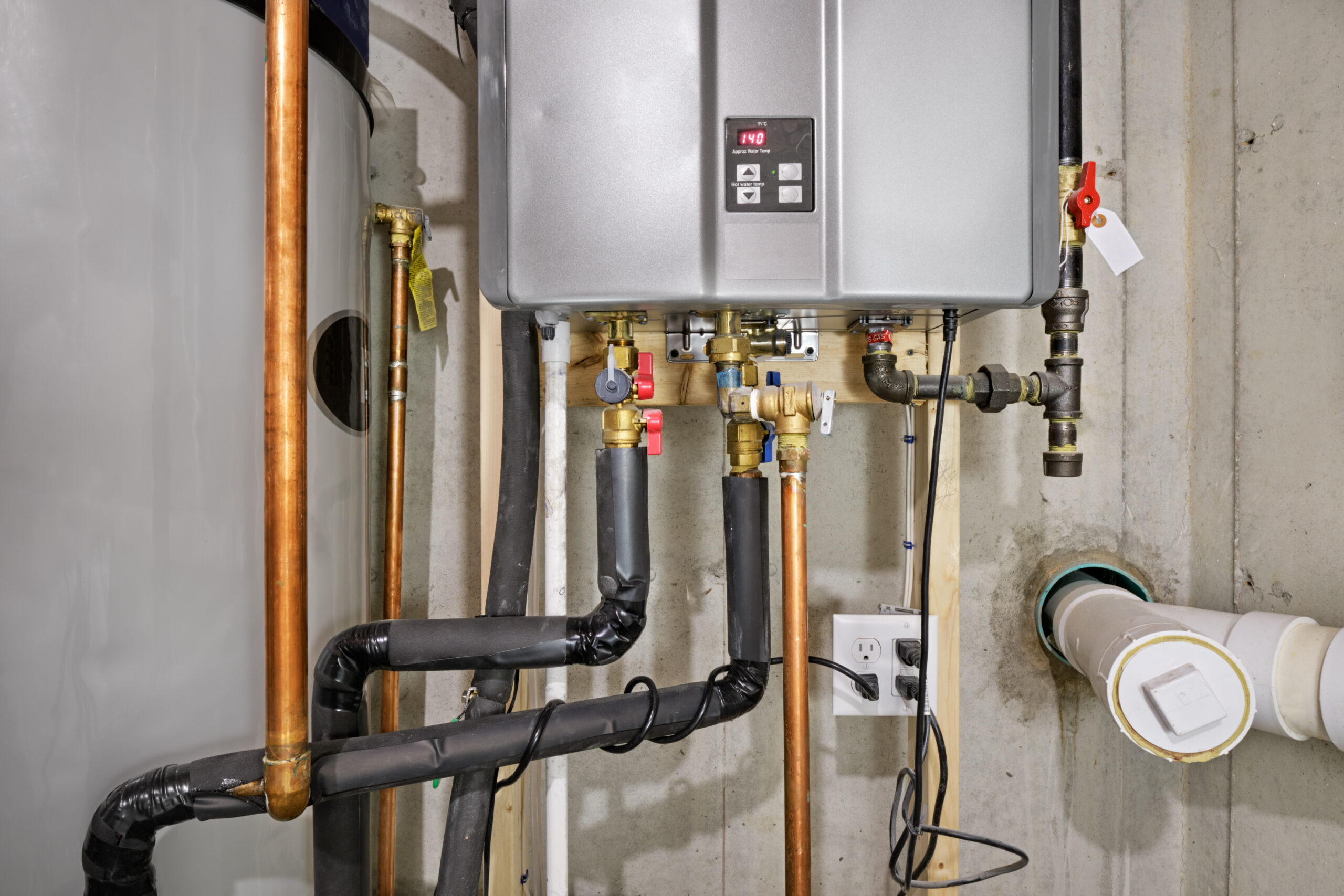When considering upgrading to a tankless water heater, one of the most significant questions homeowners ask is, “How long will it last?” Tankless water heaters, known for their efficiency and space-saving design, offer a modern alternative to traditional tank-style heaters. Let’s explore the lifespan of tankless water heaters, factors that influence their durability, and tips on how to extend their life.
The Lifespan of Tankless Water Heaters
Tankless water heaters are designed to be more durable than their tank-style counterparts. On average, a tankless water heater can last between 20 to 25 years, which is significantly longer than the 10 to 15 years expected of traditional water heaters. This extended lifespan can be attributed to the fact that tankless models do not store water, reducing the risk of corrosion and sediment buildup that typically shortens the life of a tank-style heater.
Factors That Affect Lifespan
Water Quality: The quality of the water running through the heater can greatly impact its longevity. Hard water, rich in minerals like calcium and magnesium, can lead to scale buildup inside the unit. Over time, this buildup can decrease efficiency and potentially damage the water heater’s internal components.
Usage Patterns: The amount of hot water your household consumes also plays a crucial role. Higher demand can put more stress on the heater, potentially leading to quicker wear and tear. However, tankless water heaters are built to handle high usage better than traditional water heaters, thanks to their on-demand heating capability.
Maintenance: Regular maintenance is crucial to extending the life of any appliance, and tankless water heaters are no exception. Flushing the system to remove scale buildup, checking for error codes, and ensuring all components are functioning correctly can help maintain its efficiency and longevity.
Installation Quality: Proper installation by a professional is vital. Incorrect installation can lead to numerous problems, including inefficient operation and increased strain on the system, which can shorten its lifespan.

How to Maximize the Life of Your Tankless Water Heater
Annual Maintenance: To ensure optimal performance and extend the life of your tankless water heater, it’s recommended to have it serviced by a professional annually. This maintenance should include flushing the system to remove any mineral buildup, inspecting all components for wear and tear, and updating the system software if necessary.
Install a Water Softener: If you live in an area with hard water, consider installing a water softener. This device can significantly reduce mineral buildup in your water heater, thereby enhancing its efficiency and longevity.
Regularly Check for Leaks and Corrosion: Regularly inspect your unit for any signs of leaks or corrosion. Catching these issues early can prevent more significant problems down the line.
Adjust the Temperature: Setting the temperature too high can increase the likelihood of scaling and reduce the overall efficiency of the unit. Keeping the temperature at a recommended setting not only saves energy but also reduces strain on the water heater.
Tankless Water Heater Service in Burleson
Tankless water heaters are a substantial investment in your home’s comfort and efficiency. With proper care and maintenance, they can provide reliable hot water for decades. By understanding the factors that affect the lifespan of your tankless water heater and following through with regular maintenance, you can maximize its value and functionality over its extended life.
Remember, the longevity of your tankless water heater is not just about the durability of the product but also about how well it is maintained and serviced. Choosing a trusted plumbing service like Superior Plumbing for installation and maintenance can make all the difference in ensuring that your tankless water heater performs at its best for as long as possible.




